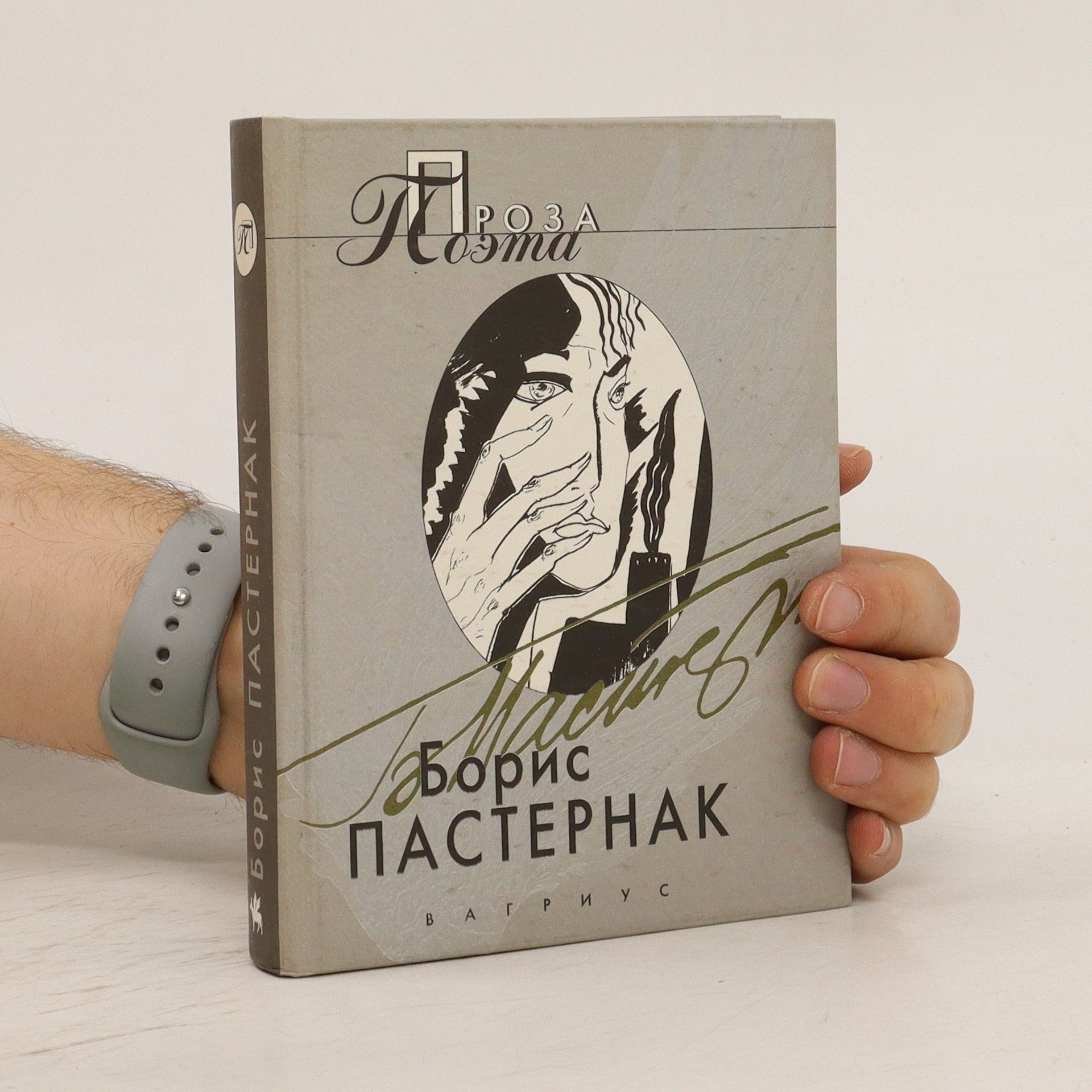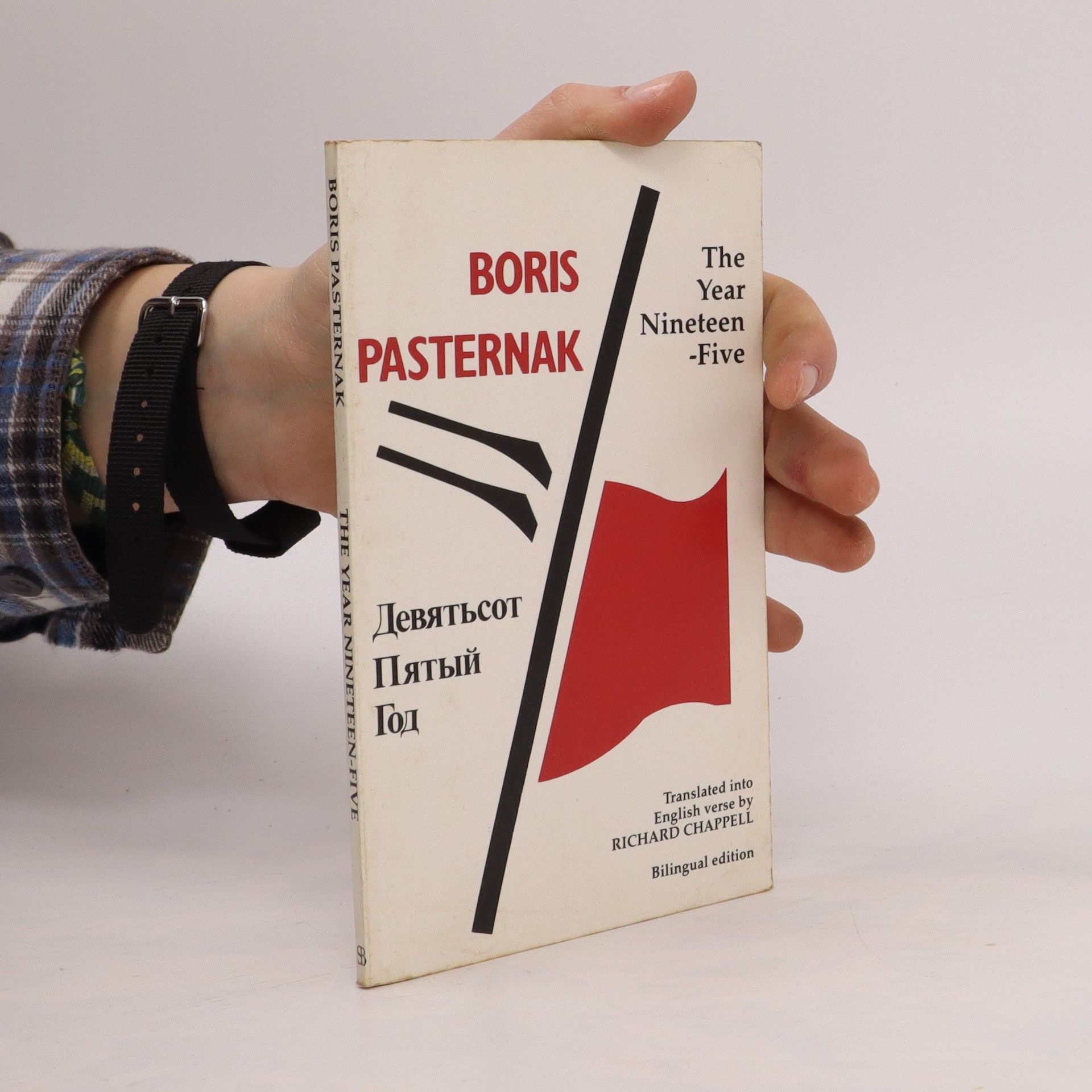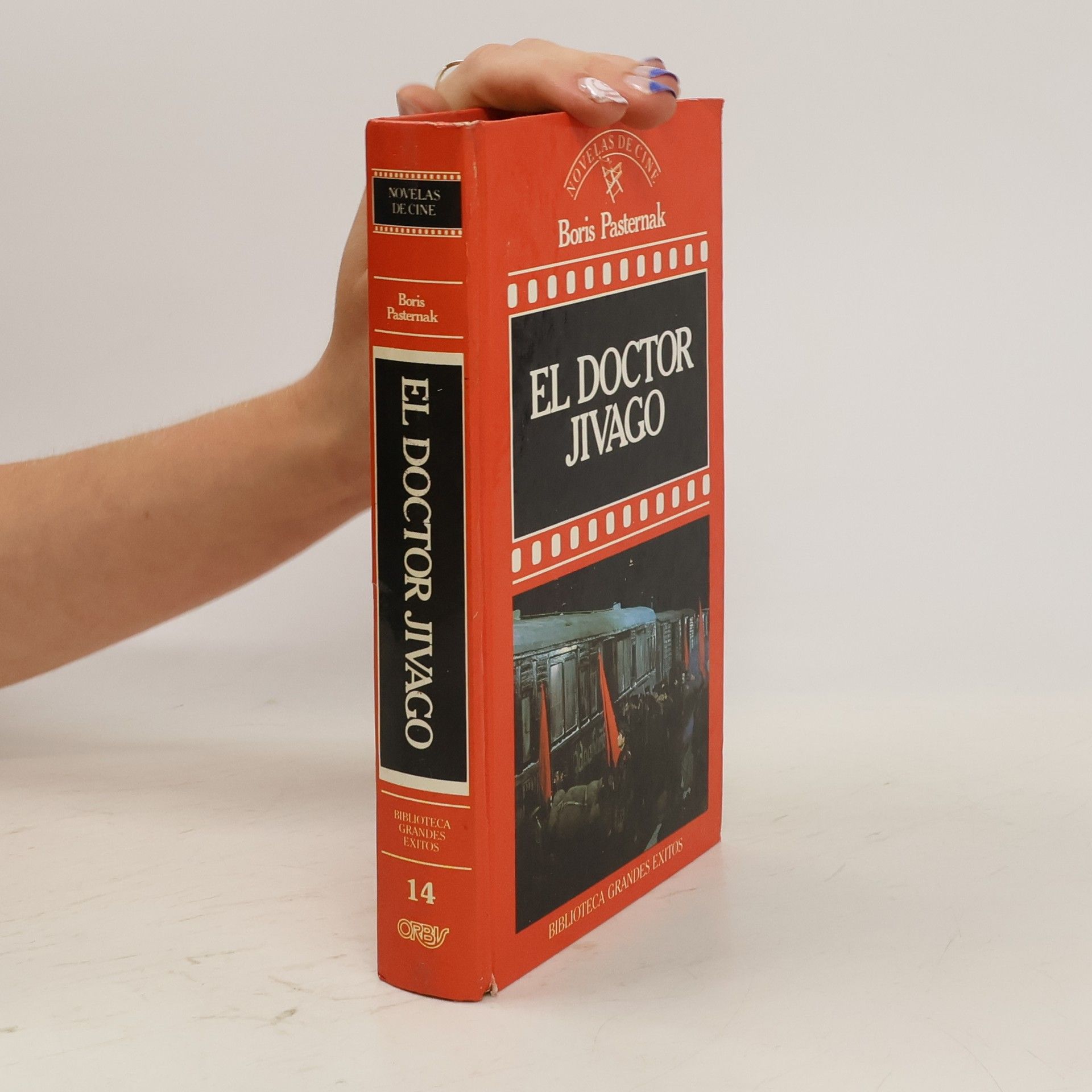El Doctor Jivago
- 447 páginas
- 16 horas de lectura
Lotgevallen van de Russische arts en dichter Zjivago tijdens de Russische Revolutie en burgeroorlog, zijn liefdesverhoudingen en zijn gedwongen deelname aan de strijd van de rode partizanen.
Los primeros versos de Boris Pasternak alcanzaron notoriedad por su distintiva imaginería y profunda resonancia emocional, marcándolo como un poeta contemporáneo destacado. Más tarde se dedicó a la prosa, donde representó magistralmente experiencias humanas complejas y el espíritu de su época. Pasternak es celebrado por su rico estilo lingüístico y su habilidad para explorar temas universales a través de vidas humanas específicas. Su obra ofrece una mezcla única de intensidad lírica y alcance épico.







Lotgevallen van de Russische arts en dichter Zjivago tijdens de Russische Revolutie en burgeroorlog, zijn liefdesverhoudingen en zijn gedwongen deelname aan de strijd van de rode partizanen.
Exploring the life of Boris Pasternak, this autobiography reflects on his experiences and thoughts following the acclaim of Dr. Zhivago. It offers insights into his artistic journey, personal struggles, and the broader cultural context of his time, revealing the complexities of his character and the impact of historical events on his work. Through candid reflections, Pasternak provides a unique perspective on the interplay between his literary achievements and the tumultuous world around him.
Boris Pasternak's groundbreaking collection, My Sister, Life, published in 1921, transformed Russian poetry and influenced a generation of poets, including Osip Mandelshtam and Marina Tsvetayeva. His evolving style, marked by simplicity, is evident in his later work, Early Trains. Pasternak's poetry delves into profound themes such as love, immortality, and spiritual reconciliation. Despite receiving the Nobel Prize for Literature in 1958, he faced political backlash from the Soviet regime, resulting in his refusal of the award, which was later accepted by his descendants in 1988.
El maestro y Margarita, que no vio la luz hasta 1966, es sin duda una de las obras maestras de la literatura del siglo XX . Moscú, 1930. Sobre la ciudad desciende Satán bajo la forma de un profesor de ciencias ocultas, y suceden prodigios que trastornan la vida de los moscovitas. Entre los afectados está Margarita, a la que Satán ofrece, a cambio de su compañía en una fiesta, la liberación de su amante, el maestro, que se encuentra en un psiquiátrico después de la mala acogida de su obra sobre Poncio Pilato (que esconde a la figura de Stalin) y Yehosua. Reseña: «Una de las grandes novelas del siglo. Un texto libérrimo, que escapa por todas sus costuras, una rebelión de la imaginación frente al corsé estalinista, un desafío.» Marcos Ordóñez, Babelia ENGLISH DESCRIPTIONNothing in the whole of literature compares with The Master and Margarita. One spring afternoon, the Devil, trailing fire and chaos in his wake, weaves himself out of the shadows and into Moscow. Mikhail Bulgakov's fantastical, funny, and devastating satire of Soviet life combines two distinct yet interwoven parts, one set in contemporary Moscow, the other in ancient Jerusalem, each brimming with historical, imaginary, frightful, and wonderful characters. Written during the darkest days of Stalin's reign, and finally published in 1966 and 1967, The Master and Margarita became a literary phenomenon, signaling artistic and spiritual freedom for Russians everywhere.
Moskau, 1946: Im Büro eines literarischen Magazins begegnen sich der gefeierte Schriftsteller Boris Pasternak und die mehr als 20 Jahre jüngere Olga Ivinskaya. Es ist der Beginn einer leidenschaftlichen Liebesbeziehung zwischen dem verheirateten Autor und der schönen Witwe, die bis zu Pasternaks Tod währen soll. Doch Olga zahlt einen hohen Preis: Stalins Schergen verbannen sie zweimal in den sibirischen Gulag, und auch Pasternaks Familie setzt alles daran, den Dichter von seiner Geliebten und Muse fernzuhalten. Basierend auf Archivmaterial und Quellen aus Familienbesitz erzählt die Großnichte des Literaturnobelpreiträgers die Lebensgeschichte der Frau, die Pasternak zu Lara in Doktor Schiwago inspirierte. Ausstattung: 16 Seiten farbiger Bildteil
Výber z poézie Borisa Pasternaka. Z rozličných ruských originálov vybral, preložil, kalendárium, edičnú a bibliografickú poznámku a doslov napísal Teodor Križka.